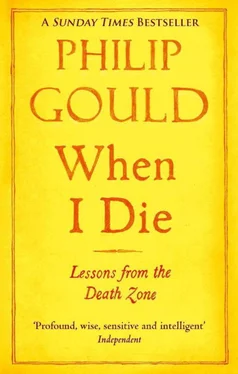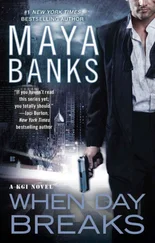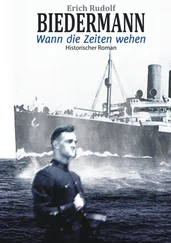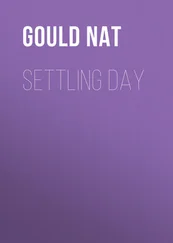The actual chemotherapy was done in a light and friendly basement, with each patient sitting in one of what looked like a pair of airline seats. My first treatment was on 12 February. It started at about nine in the morning and consisted of a series of intravenous drips that were fed into my body through a ‘port’, which had already been inserted via a minor operation.
First came a water flush, then anti-sickness drugs, then the two chemo drugs; a third was to be taken in tablet form at home. None of this hurt or was unpleasant, although I was disturbed to find that the second drug turned my pee a horrible bright red. The treatment was strong and I could immediately feel the power of the drugs moving through my body. Still, I felt I would be able to cope with it.
Gail came and sat with me for hours during these sessions, as did Sally Morgan. Sally used to run the Blair political office, where her friendliness and huge warmth belied a hidden toughness. She had protected Tony in the tough middle period of his prime ministership, and was a constant support to me.
Meanwhile, I was focusing on the serious matter of fighting the cancer. Georgia had bought me the complete speeches of Churchill and I listened to them as I ran on a running machine, trying to get fit for the operation.
Everything I thought about the battle with cancer was strategic, as if I were fighting an election campaign. I saw the elimination of the cancer as victory, and the test results as opinion polls. Alastair Campbell called the cancer Adolf, and me Churchill.
People might have thought I was mad, and in a way I probably was, but that was how I felt, how I had always lived my life. I loved politics, and loved elections even more. My first had been in 1987 and I expected my last to be in 2010, although I always hoped privately to do more. But above all I loved to think, to strategise, to solve the unanswerable political problem. And this is what I was doing now, thinking constantly, not just about how to get through, but about the best way of getting through.
For me strategy is not a static thing, but fluid and ever changing. As my time passed I was to become, I hope, stiller, and calmer and more reflective, reacting in new ways to the new demands of cancer. But my instinct is always the same: identify the problem and find the way forward. In the end, of course, there may not be one, but that moment, too, will have its own answer.
As the surgery got closer I had to put my affairs in order. I made a will and organised my funeral. This sounds far worse than it is. The very process of working out the order of service and the music dispels anxiety. When Gail and I went to see the vicar to discuss all this, we rowed horribly all the way there. But, when faced with the reality of the funeral, we immediately grew calm. We felt this was a small defeat for death.
Although my treatment at the London Clinic and the London Oncology Centre had been exemplary I became convinced it was time to move on; I wanted to get back to the NHS. My first instinct was to go to the Royal Marsden Hospital, but they had just suffered a major fire and I was told by someone attached to the hospital that surgery there would not be advisable for a while. I spoke to many senior consultants within the NHS – Ara Darzi, the distinguished cancer surgeon, was particularly helpful at this time, on an entirely informal basis – and was given names and hospitals, but could find no consensus as to where I should go.
One day I asked a leading NHS consultant where I should go for my best possible life chance. He answered without pausing for thought: Murray Brennan at the Memorial Sloan-Kettering Cancer Center in New York City. And he was not alone in saying so. In the end, after endless discussion and investigation, we arrived at two options, both of which we believed to be equally valid: a well-respected surgeon at a London teaching hospital and Memorial Sloan-Kettering. The advice I had been given was generous, impeccably fair and informed throughout. But in the end the decision was mine, and I take full responsibility for it.
I went to see both surgeons. The NHS consultant was charming and proposed a radical course of action. He wanted to perform what is called an oesophago-gastrectomy, in which the tumour would be fully removed. He sought to do this not just by entry through the stomach but by cracking open my ribs and gaining access through the chest. He believed in taking out as much of the stomach and as many lymph nodes as possible. He told me there would be pain and discomfort and it would be tough, but that patients get through it and it is worth it for the improved life chance. I liked him, but felt uneasy. I was not sure, and planned to visit New York.
On 21 April Gail and I walked to Memorial Sloan-Kettering in New York City in the spring sunshine. The hospital soared above us like a vast office block, right in the middle of Manhattan, with a reception that was more corporate than medical. Above us was floor after floor offering what appeared to be an infinite variety of cancer specialisms, like a great cancer department store.
I arrived at Murray Brennan’s floor expecting the atmosphere to be like a typical British private hospital: faded, plush and very quiet. It was the opposite, utilitarian rather than comfortable, reflecting both the harshness of New York and the ethos of the hospital, which is to kill cancer whatever it takes. And far from being quiet it was heaving with people, waiting largely to see Murray himself. They were less like patients waiting to see a doctor, more like pilgrims coming to see a healer.
In any event we waited a long time, far longer than in any other hospital before or since, and we finally met Murray only for a short time. But in that period he was impressive, even if he also seemed to be holding back. He is a New Zealander not an American, taciturn to the point of coolness – at least at first meeting. He has had a hugely distinguished career, having been chairman of the surgery practice at Memorial Sloan-Kettering for more than twenty years.
He told us my cancer was very serious but that he was confident there was a good chance of fixing it. He was proud of his hospital and its high survival rates, putting this down not to any single factor but to a connected system of excellence. And he said that Memorial Sloan-Kettering was not a private hospital but an endowment hospital, seeing 20 per cent of its patients on a not-for-profit basis.
In contrast to what we had heard in the UK he preached moderation rather than radicalism. I would not go to intensive care but straight to a recovery room. He would perform a full resection (removal of the tumour), but he intended to confine entry to the stomach and avoid secondary access through the chest, which he was strongly against.
Gail liked his approach because she considered it a more moderate, sensible option and she disliked my predilection for extremism. But she was not relaxed about going to the United States and was nervous about the possibility that the care would be fragmented and dislocated. I liked it because it seemed the boldest option, offering the best chance of survival and the lowest level of discomfort.
The hospital was impressive but the atmosphere felt unyielding and hard; it was disconcerting to see Gail paying by credit card there and then. It was efficient rather than warm.
Once we were back in the UK we were unsure and ungrounded, not knowing what to do. Our problem was not just that we were uncertain, but that we were making our decision in a kind of no man’s land, connected to the NHS but not really part of it. Although I had regained contact with NHS consultants I had not connected properly with the NHS system. I had left one harbour, but failed properly to reach another.
So I gave it my best shot and asked everyone I respected, including all the right NHS people, what I should do. The view was pretty unanimous: Memorial Sloan-Kettering was an excellent facility and probably the best choice. There was no agreement at all on a preferred NHS equivalent.
Читать дальше












